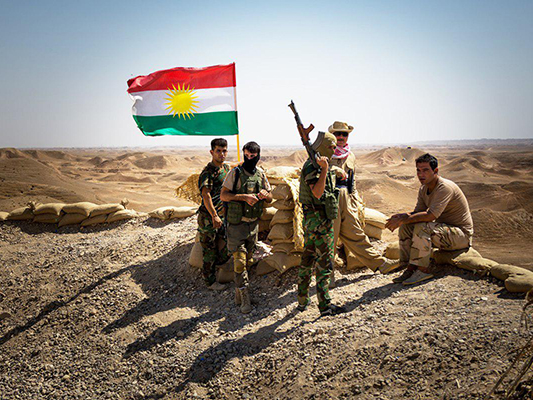In a political action, it is not the dreams that guarantee the results; rather, the results are the sum of political, economic, and geopolitical relations and calculations.
A political analyst says the recent referendum held on the independence of the Iraqi Kurdistan region has scuppered the chances of having a bright future for Iraq.
Iranian Kurdish lawmaker Heshmatollah Falahatpisheh has, in an interview with the Persian-language Iran daily on September 26, weighed in on the referendum held on the independence of the Iraqi Kurdistan region. The following is the full text of the interview.
Iraq had a bright horizon ahead in recent weeks after ISIS was brought to its knees. The unity among different groups in the country, from Popular Mobilization Units to Kurdish Peshmerga, was an ideal opportunity for closer cooperation in a bid to bridge their differences. However, the plebiscite on Kurdistan’s independence has put this bright horizon in a shroud of mystery, especially at a time when remnants of ISIS are still out there in parts of Iraq, including Kurdish regions.
The referendum held on September 25, 2017, will not only pose a challenge to Iraq’s unity, but set the scene for a serious standoff between two major forces which are confronting ISIS, namely the Iraqi military troops and Kurdish Peshmerga. The question is whether the outbreak of a conflict between these two forces will lay the groundwork for an ideal opportunity for future activities by ISIS and Takfiri groups.
The plebiscite has only aimed to make the dream of one group of people come true without providing any answers for a whole lot of issues facing Iraq and the region. In a political move, it is not dreams that guarantee the desired result, but the outcome is the overall result of political, economic and geopolitical calculations. For instance, the borders of Iraq’s Kurdistan have not officially been agreed upon, and either side has some claims on the frontiers. Add to it ambiguities in Iraq’s multi-ethnic regions populated by Arabs, Turkmens and Kurds. There are no answers to such issues each of which can trigger a costly conflict and confrontation. That means the referendum on the independence of the Iraqi Kurdistan region was held almost without political insight and prudence.
But it has come to that point. This is the reality. Under such circumstances, and given the unwarranted positions and actions taken by Kurdistan authorities, regional countries such as Iran, Turkey and Iraq should use their political insight to control the situation from now on. At the moment, the region needs serious and continuous talks with Kurds and also between influential powers in the region and in the world.
The Middle East definitely cannot afford to see another tension and confrontation, especially at a time when terrorism still has not been completely destroyed in this part of the world. Many a nation or political leader in the region will come to realize that, at this juncture, the Middle East is in dire need of powerful governments and the establishment of deeper bonds between these governments and their people.
